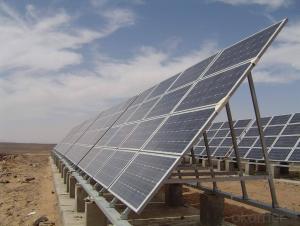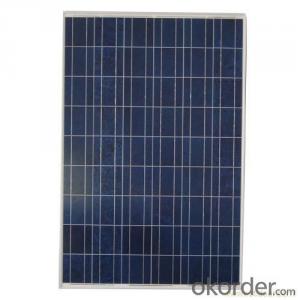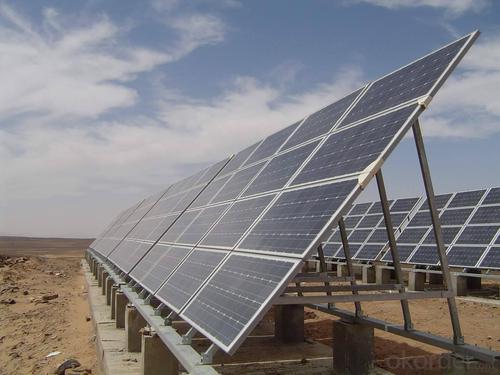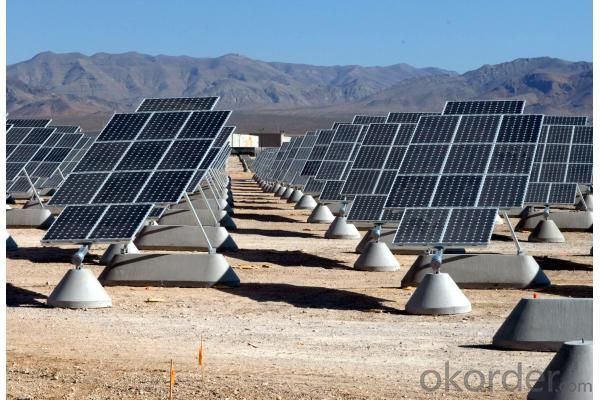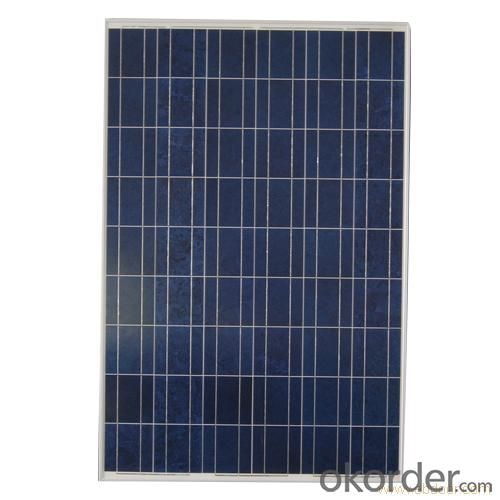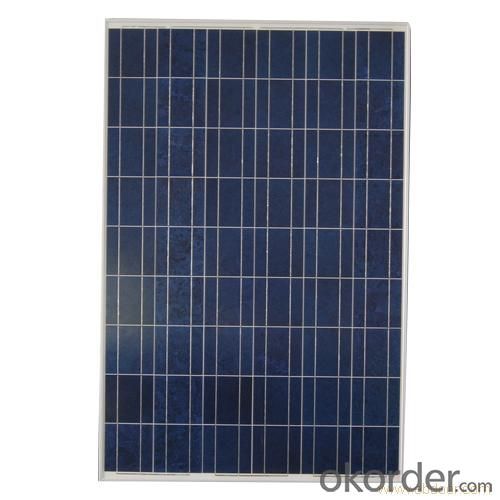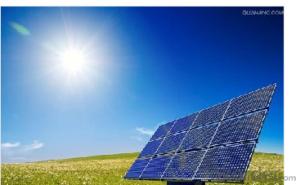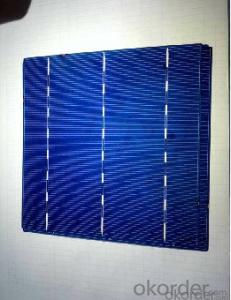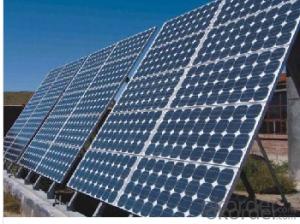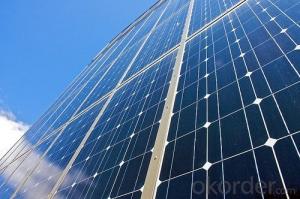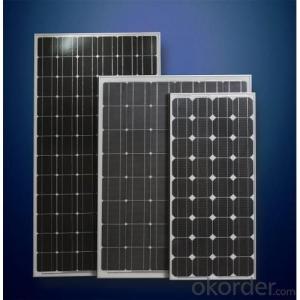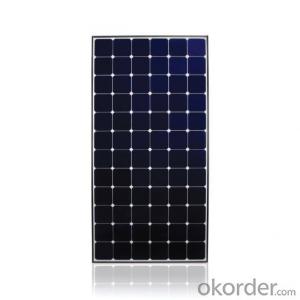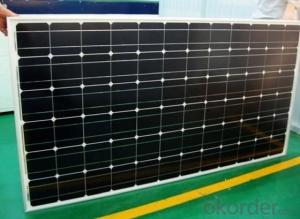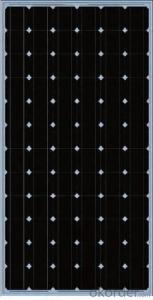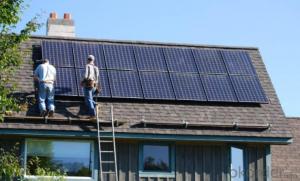Woodland North Carolina High Quality Mono Solar Panels and Solar Modules
- Loading Port:
- China main port
- Payment Terms:
- TT OR LC
- Min Order Qty:
- 10000 watt
- Supply Capability:
- 100000000 watt/month
OKorder Service Pledge
OKorder Financial Service
You Might Also Like
Specification
Solar Monocrystalline 125mm Panel Series(45W-50W)
Product Description
Monocrystalline Silicon Solar Panel (45-50W)
• 10 years 90% output warranty
• 20 years 80% output warranty
• High conversion efficiency mono/poly-crystalline amorphous silicon solar cells
• Modules incorporate high performance bypass diodes to minimize the power drop caused by shading
• High transmittance, low-iron tempered glass
• High performance EVA encapsulate to prevent destroying and water.
• AI frame: without screw, corner connection. 8 holes on the frame can be installed easily
• Good performance of preventing from atrocious weather such as wind and hails
• Certifications: CE IEC TUV VDE UL, Class I
Details
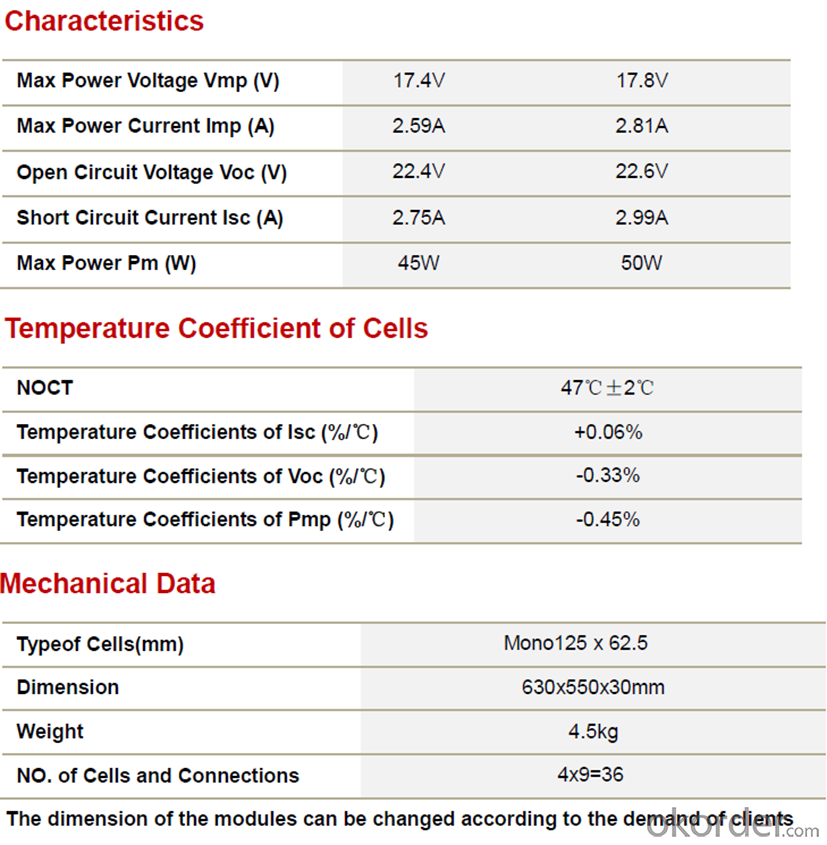
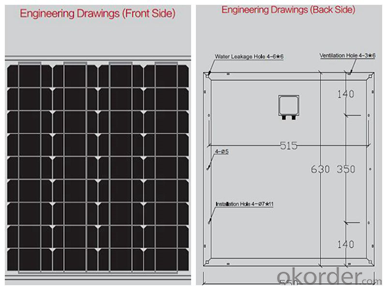
Certificate

Images
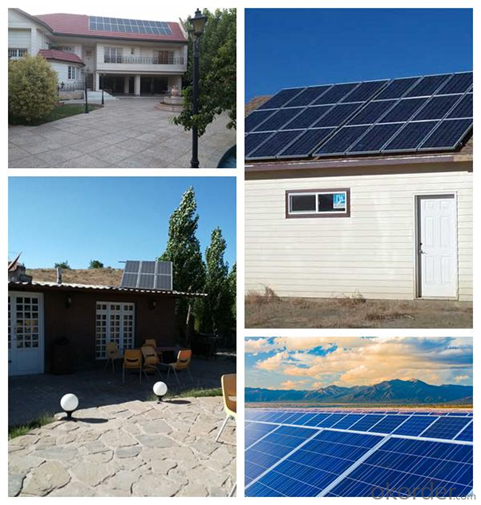
FAQ1
We have organized several common questions for our clients,may help you sincerely:
1.What price for each watt?
It depends on the quantity, delivery date and payment terms,
2.How do you pack your products?
We have rich experience on how to pack the panels to make sure the safety on shipment when it arrives at the destination.
- Q: What is the average payback period for solar panels?
- The average payback period for solar panels is typically around 7 to 10 years. However, this can vary depending on factors such as location, system size, local energy rates, and available incentives.
- Q: K i'm almost ready to give up! I've bought every kind of pv I can think of, and I can see this technology will not be affordable in my lifetime.I conserve all I can (so far as to handwashing my laundry etc) I'm not rich, but I'm saving for a solar pv with decent amperage. I love tinkering with things if I see the point.All the cells i've seen are very weak. What PV would you buy? (all I need is to power my computer from a deep cycle 2 volt battery connected to an inverter)God Bless You
- Try now. It's much cheaper
- Q: I been considering to get a solar panel system but I don't know if I'm going cut my electric bill every month , It's a lot of money to spend and I'm not really sure
- I'm waiting for the gov't to do right thing and subsidize my purchase!
- Q: Can solar panels be installed on a mobile home?
- Yes, solar panels can be installed on a mobile home. In fact, mobile homes are an excellent candidate for solar panel installation due to their flexibility and relatively small energy demands. The panels can be mounted on the roof or on a ground-mounted system nearby, providing clean and renewable energy to power the home.
- Q: How do solar panels generate electricity?
- Solar panels generate electricity through the photovoltaic effect. When sunlight hits the solar cells within the panels, the photons from the sunlight excite the electrons in the cells, causing them to move and create an electric current. This current is then captured and converted into usable electricity for various applications.
- Q: how does solar panels work?
- Solar panels collect solar radiation from the sun and actively convert that energy to electricity. Solar panels are comprised of several individual solar cells. These solar cells function similarly to large semiconductors and utilize a large-area p-n junction diode. When the solar cells are exposed to sunlight, the p-n junction diodes convert the energy from sunlight into usable electrical energy. The energy generated from photons striking the surface of the solar panel allows electrons to be knocked out of their orbits and released, and electric fields in the solar cells pull these free electrons in a directional current, from which metal contacts in the solar cell can generate electricity. The more solar cells in a solar panel and the higher the quality of the solar cells, the more total electrical output the solar panel can produce. The conversion of sunlight to usable electrical energy has been dubbed the Photovoltaic Effect. The photovoltaic effect arises from the properties of the p-n junction diode, as such there are no moving parts in a solar panel.
- Q: Dose a solar panel need the entire range or spectrum of sunlight to produce power?
- It's a huge field of study, very important to solar cell development. People are trying to optimize spectral response for sunlight, even for sunlight in specific places. Google solar cell spectral response for many many websites. Most of them are specific to one experiment.
- Q: So idk how to connect a solar panel to a battery ...is it like a series connection from the solar panel to the battery, or a parallel connection from solar cell to battery? (to charge) please and thank you
- it depends how big the panel is. a small trickle charger (like a 2W panel with built-in diode), just connect + to + and - to - (parallel) to trickle charge the battery. The diode will keep the batter from discharging through the panel when there is insufficient sunlight. for a large panel (like a 220W 24v panel), you best go through a charge controller. the charge controller has 2 leads for the solar panel input, 2 leads for the battery connection and 2 leads for the 2v load. just follow the instructions to connect the panel and battery to the controller, and MAKE SURE YOU USE THE REQUIRED FUSES. very straightforward stuff -- just RTFM
- Q: Can solar panels be used for powering a hospital or healthcare facility?
- Yes, solar panels can be used to power a hospital or healthcare facility. Solar energy can be harnessed and converted into electricity to meet the energy needs of these facilities. By installing solar panels, hospitals can reduce their reliance on traditional grid electricity, lower energy costs, and contribute to a more sustainable and environmentally friendly healthcare system. Additionally, solar panels can provide a reliable source of power, especially in areas with inconsistent or unreliable electricity supply.
Send your message to us
Woodland North Carolina High Quality Mono Solar Panels and Solar Modules
- Loading Port:
- China main port
- Payment Terms:
- TT OR LC
- Min Order Qty:
- 10000 watt
- Supply Capability:
- 100000000 watt/month
OKorder Service Pledge
OKorder Financial Service
Similar products
Hot products
Hot Searches
